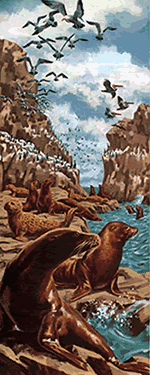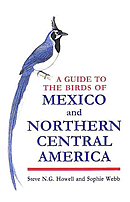Chris Wemmer, Fellow
Professional History Research Interests Curriculum Vitae Camera Trap Codger Natural History Website Photo Gallery Professional HistoryChris Wemmer is a Research Associate at the National Zoological Park and the National Museum of Natural History, and a Fellow of the California Academy of Sciences (CAS). For 29 years he was in charge of the National Zoo’s Conservation and Research Center (CRC) in Front Royal, Virginia, where he worked with National Zoo and Smithsonian staff to develop CRC’s programs in conservation science, international training, and education. During that period the center’s staff grew from 12 to over 100, and the facility became a major venue for graduate student studies, endangered species research, and international training. As a science administrator Wemmer promoted efforts to integrate Smithsonian’s programs in conservation biology, and advanced K-12 science education through experiential learning. In the 1980’s he was active in the American Zoo Association (AZA), served on the Board of Governors (1988-1990), and chaired several committees. At that time he conceptualized and advanced the implementation of two integrative mechanisms: the Taxon Advisory Groups (TAGs) and Fauna Interest Groups (FIGs). The latter evolved into the Conservation Action Partnerships (CAPs), and both are in use today. In the late 1980s he developed a Zoo Biology training course that enlisted the support and involvement of zoo personnel in the AZA and several foreign countries. With funding from the Pew Charitable Trusts the program was delivered to zoos in Latin America, Africa, and Asia. To better integrate independent training initiatives in biodiversity-related subjects, Wemmer and his associates at the SI proposed the formation of the Smithsonian Training Council (1989-1996), which was approved by Assistant Secretary Robert Hoffmann. As a result of related events and an external review by the Smithsonian Council, this experiment in inter-unit cooperation grew into the Institute for Conservation Biology (1997-2000). From 1993-1996 he served on the Board of Governors of the Society for Conservation Biology representing zoos, aquaria and botanical gardens. Wemmer was involved in various aspects of third world conservation since the 1970s. He served as scientific administrator of the Smithsonian-Nepal Tiger Ecology Project (1977-1987), and advised the U.S. Fish & Wildlife Services Asian Elephant Ecology Project (1988-92). From 1992 to 2001 he was the Chairman of the IUCN's Deer Specialist Group, and a member of two other specialist groups. Wemmer is particularly interested in grass-roots approaches to building conservation capacity in the developing world, particularly through long-term ecology projects in protected areas. He currently leads a series of conservation and research initiatives in Myanmar (Burma), and has promoted the involvement of scientists from the Smithsonian’s Natural History Museum, the California Academy of Sciences, Vienna Natural History Museum, and Australia’s CSIRO. He has also worked in Thailand, Indonesia, India, Nepal, Sri Lanka, Malaysia. He has published over 100 articles in technical journals and has edited four books. Research InterestsI have broad interests in natural history, and have published on the behavior, ecology, and reproduction of mammals, birds, and lower vertebrates. Dearest to my heart are large mammals and ungulates in particular -- those charismatic herbivores that sustain populations of large carnivores and serve as flagship species. My current research, pursued with Peter Leimgruber of the National Zoo, is devoted to understanding the ecology of wild elephants in SE Asia and the ecosystems they depend upon for their survival. I am also working with Dr. Kate Christen to edit a book on the ethics of human-elephant relations titled “Never Forgetting—Elephants and Ethics.” The lives of people and large mammals are entwined in all natural landscapes, including protected areas. For the past decade I have studied park management and environmental policy issues in Myanmar, where populations of wild and domestic elephants are second in size only to India. My role has been as a facilitator. It has been gratifying to guide young wildlife managers, park staff, and graduate students there, and to encourage and support projects that help us understand and resolve the intersecting issues of parks, wildlife conservation, and human communities. Curriculum Vitae (abbreviated)Present AffiliationsFellow Research Associate Current Address 6125 Tom’s Trail, Magalia CA 95954 Past Appointments Senior Scientist Associate Director for Conservation & Research (Senior Executive
Service) (1985 - 2003) Curator-in-Charge (Supervisory Wildlife Biologist, GS-14) (1977
- 1984), Department of Conservation Supervisory Mammalogist (Supervisory Wildlife Biologist, GS-12/1)
(1974 - 1976), Office of Animal Management, Conservation and Research
Center Curator of Small Mammals and Carnivores Personal Born July 6, 1943; San Antonio, Texas Academic Degrees 1972: Ph.D., University of Maryland (Zoology) Teaching Experience 1965 -- 1967: Teaching Assistant, San Francisco State College
(Vertebrate Natural History, Mammalogy) Field Experience Numerous visits to 12 countries in three continents, amounting to over three years abroad. Sixteen visits to Myanmar amounting to over a year of field time. Speak rudimentary Burmese. Grants Awarded Over 36 grants received over a 28-year-period totaling $2.65 million. Leadership and Program Development Scientific advisor: Smithsonian Nepal Tiger Ecology Project
(1977 -1989) |
|||



